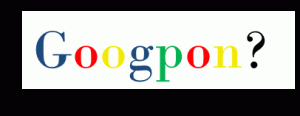
This week Google introduced its sharing (not to be confused with “social”) network, Google+.
Here are some initial thoughts and observations. Will add more as I dig in further.
1. I’m just as conflicted over the name as I was with Google +1. On one hand, it’s short and I get it. On the other it’s a nightmare to toggle between + and “plus.”
2. They key to social (and sharing) is scale. The more people in the network, the more valuable the network. Google has a lot of people. Now it just needs to connect them. Google+ should help.
3.Advertising opportunities in and around Google+ will likely be less about new units or formats but rather advanced targeting. This is another way for advertisers to more finitely target and reach the folks most likely to be interested in their message. Whether that message appears on Google+ or another Google owned, operated, or connected property is TBD.
4. On Google+ are Friends, Family, and Acquaintances. I’m surprised Business or Work is not a standard classification. Would help Google compete with LinkedIn just as much as Facebook and Twitter.
5. As a user, I love the circles concept. It’s intuitive and the fact that Google+ is new allows me to start fresh by categorizing my connections and sharing only the appropriate stuff with the appropriate peeps. Wish I could have done this on Facebook from day 1. As it stands, I end up sharing less on FB because I don’t want to bother my personal friends and family with work-related stuff and don’t always want my industry colleagues to see my personal stuff.
6. I’m surprised that the search box isn’t more prominent on Google+. In fact, I don’t see one at all. Goes against my premise in Chapter 5: Be Where Your Audience Is. They must be counting on people using their toolbars and browser defaults to Google things. Sure seems like a missed opportunity though, especially given how many search queries originate in Facebook. (See update from July 2 below.)
7. The privacy police will be watching closely any little screwup will fetch headlines.
Update July 1, 2011:
8. Been thinking more about why Google rolled out a sharing network rather than a social network. Now actually seems pretty obvious to me. Contrary to #6 above (which I do expect to be remedied in short order) this IS about improving Google’s bread and butter product and monetization engine — Search.
Every share that happens within Google+ gives a critical signal to Google of the value and context for a specific digital asset – website, video, image, etc. It also allows Google+ to see who the real influencers are on the web based on number of shares and +1s. Pretty soon Google will no longer need to rely on links created by webmasters as its primary method of determining quality and authority for search rankings.
More on this line of thinking:
Like vs. Link and the Future of Web Ranking
Why Google Needs a Social Network
Why Google Me
9. Yes, I’m happy the name of this project is Google+ and not Google Me so I can keep on wearing my shirts with no fear or trademark violation. No, I have no plans to create Plus Me shirts. :)
Update July 2, 2011:
10. Regarding point #6 above, perhaps I was a bit hasty in saying that Google isn’t “being where its audience is.” While I still think incorporating a search box into the Google+ UX is a no-brainer, Google has brought its new sharing network to where its audience by integrating it into the nav bar atop Google.com, Gmail, and other Google properties and framing it in a block box to really stand out. See screenshot below. I find myself constantly coming back to Google+ because of the not-so-subtle reminder of its existence and the fact that notifications appear there as well.

Update July 13, 2011:
Today I published a column in MediaPost’s Search Insider titled, “Google+ Adds Up.” In it I outlined 10 key takeaways from Google+ to date including some of the observations posted here.
Update July 14, 2011:
Yesterday I was asked what impact I thought G+ would have on LinkedIn. In composing my thoughts, I stumbled upon a key insight from Google’s foray into search that very likely may have dictated its (most recent) approach to social. Read on…
I don’t think G+ will eat away at LinkedIn. People use LinkedIn to connect, not share. G+ is for sharing. That’s why it will hurt Twitter. Twitter sole purpose is sharing and the experience/UI is not very intuitive (especially when it comes to controlled sharing).
Same reason I don’t think G+ will eat at Facebook. While sharing is the #1 activity on Facebook, it’s use as a full social network is broader and includes that connecting aspect of LinkedIn. It’s about making new relationships as much as sharing with current ones.
Google dominated search because it had the luxury of not being first mover. It saw what Yahoo and Alta Vista and others did and took the key functionality and made it better. Rather than a portal with a bunch of links and content, it just stripped out the search.
Same now for social. Google had luxury of seeing FB, Twitter, LI, etc. And now it realizes sharing is the most vital aspect of social networking. So it’s stripped that out and built a whole experience around just that.












